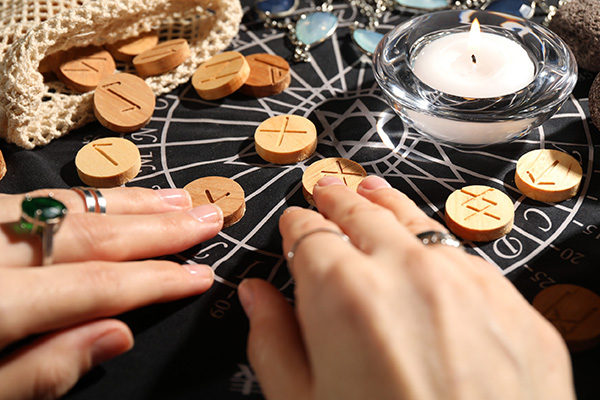How to Navigate Your Return to Source When Life Becomes Chaotic
 Stress can truly unsteady you, whether it shows up in your physical state, emotions, or spiritual health. A lot of us are all too aware of this reality. It creeps in gradually or strikes like a sudden storm. Before you know it, you feel drained, distracted, anxious, or simply not like yourself anymore.
Stress can truly unsteady you, whether it shows up in your physical state, emotions, or spiritual health. A lot of us are all too aware of this reality. It creeps in gradually or strikes like a sudden storm. Before you know it, you feel drained, distracted, anxious, or simply not like yourself anymore.
When this occurs, it’s as though your internal guidance system is misaligned. The sensation of being centered, tranquil, and connected slips away. Thankfully, there’s a straightforward and beautiful path back to your “true north”: meditation.
Meditation has endured because it’s truly effective. It doesn’t just enhance our ability to manage stress; it revitalizes our energy and restores our equilibrium.
Moreover, it provides something truly extraordinary: a direct encounter with our link to the unified intelligence. Some may refer to it as the void, while others might call it Source, Spirit, or simply Presence. Regardless of the name, it’s that expansive, serene space that binds everything, and we are already included in it.
I have personally experienced the impact of meditation on my life. However, I’ll admit that the last few weeks have been a whirlwind. There has been a lot happening, and amidst the chaos, I neglected my daily meditations. And I certainly felt the consequences.
When I skip my time of realignment, everything seems slightly more challenging. Meditation allows me to feel whole again. It acts like a reset for my body, mind, and spirit. With the kind of energy work and spiritual focus I need daily, I depend on it to keep me centered and attuned.
Meditation is the dissolution of thoughts in Eternal awareness or Pure consciousness without objectification, knowing without thinking, merging finitude in infinity ~ Voltaire
That being said, during tumultuous times, I recognize that I require something to maintain my stability, even if I can’t sit in silence for extended periods. This is when my shortcut mantra becomes invaluable. I use a simple phrase: “I am connected to the Source of my Being.” I might softly recite it to myself while walking the dogs or completing household tasks. It’s not a complete meditation, and I wouldn’t claim it replaces those deeper periods of stillness, but it’s beneficial. It serves as a buoy I can cling to until I can fully plunge back into deeper waters.
Then comes that exquisite moment. Do you know that feeling? That instant when healing takes hold and you suddenly become aware of your improved state. Perhaps your headache has vanished, your breath is more profound, and your spirit feels lifted. You stop and reflect, “Wow, I feel better.” It’s a subtle kind of celebration. Whether the change is physical, emotional, or spiritual, returning to equilibrium feels like returning home.
Some individuals manage to maintain that balanced state quite regularly. Perhaps they’ve discovered the optimal combination of healthy living, solid boundaries, spiritual practices, or maybe they’ve just been fortunate in the genetic lottery. I genuinely admire such people. Yet for many of us, especially those on a spiritual journey, the road to balance can be uneven.
I know numerous profoundly loving and spiritually committed individuals who battle with anxiety, chronic illness, addiction, depression, or simply the burden of sensitivity in a world that often feels overwhelming and loud.
We grow up in a culture that does not always value energy or emotion. We are taught to endure, to perform, and to conform. Consequently, our innate connection to Source gets obscured. We find ourselves living from a survival perspective rather than from a place of presence. We forget the light with which we entered this world.
However, that light never truly abandons us. I genuinely believe this. It might recede into the background, to what I term the back room of longing. That gentle yearning for something deeper, something authentic. Perhaps it’s not a flaw or weakness, but rather a signal from our soul that it’s time to return home. Maybe it’s our inner self quietly reminding us, “Hey, remember who you are!”
If your goal is to avoid pain and escape suffering, I would not advise you to seek higher levels of consciousness or spiritual evolution ~ M. Scott Peck
And here’s the beautiful reality: we are not broken. We are not too far gone. We are not disconnected beyond repair. We are perpetually, perennially connected to the Source of our Being. We just need to remember. Meditation is one of the most direct and loving methods to facilitate that memory.
When we are drained or disoriented, it becomes more difficult to experience that connection. Hence, healing commences with the choice to return. We begin with intention. We declare, “I want to feel better. I want to reconnect.” Then we commit. Perhaps we promise ourselves a few quiet moments each day. Maybe we initiate with breathwork, mantra, or moving meditations. There’s no ideal way to go about it. What matters is the return, the effort, and the commitment to showing up.
And belief. Oh, belief holds tremendous power. Trust that healing is achievable. Believe that transformation is already occurring, even if it’s not visible yet. Have faith in yourself. As you align more with the sentiment of being connected, your outer experiences begin to mirror that reality. It’s not merely about thinking your way into healing; it’s about embodying the feeling that you are already whole.
If you’ve been out of sorts lately, if life seems burdensome or chaotic, understand you are not alone. Recognize that your journey back to peace is awaiting you. You don’t have to conquer a mountain. Simply pause, breathe, and remember: you are connected to the Source of your Being. You always have been.
Begin there. Start small. Be kind to yourself. And trust that something profound within you is always guiding you home.
|
Shani is a skilled practitioner in Reiki, aromatherapy, reflexology, body spin, and animal telepathy, having undergone psychic development training at the Arthur Findlay College of Psychic Research in England. As a published writer, her articles and predictions feature in numerous reputable magazines and psychic websites, and she has provided readings to many notable personalities, including heads of state in Africa. Her empathy allows people to connect with her easily. Each month she participates in a psychic circle, where the insights received from Spirit never cease to amaze those present. Although born in London, Shani has journeyed around the globe, studying African Mysticism while imparting her unique gifts to those seeking her extraordinary talents. From her extensive travels, she has learned that clients often possess a deep yearning to connect with the source of their being. Experience a reading with Shani at PsychicAccess.com. |
Life can sometimes feel fast-paced and overwhelming, leaving us feeling disconnected from our authentic selves. When such feelings arise, it’s crucial to find a way back to the source – that sanctuary of inner peace, clarity, and alignment with our higher purpose. Here are several strategies to assist you:
1. Embrace mindfulness: One of the most successful methods for reconnecting with source is through mindfulness. This involves being entirely present, noticing your thoughts and emotions without judgment. By practicing mindfulness, you can quiet the distractions of daily life and listen to your inner guidance.
2. Immerse in nature: Nature has a remarkable ability to ground us and foster a sense of connection to something larger than ourselves. Go for a stroll in the woods, relax by the sea, or simply enjoy your backyard. Allow yourself to appreciate the beauties of nature and let it calm your spirit.
3. Meditate: Meditation is a potent tool for rediscovering your connection to source. By calming your mind and focusing on your breath, you can access your inner wisdom and unite with your higher self. Make meditation a daily habit to remain centered and true to your essence.
4. Journaling: Documenting your thoughts and feelings can provide a therapeutic means to process emotions and gain insight. Dedicate some time each day to journal about your experiences, fears, and aspirations. This can help unveil patterns and insights that guide you back to source.
5. Seek support: Sometimes, returning to source necessitates assistance from others. Connect with a trusted friend, therapist, or spiritual advisor for insights and encouragement. Sharing your struggles with someone who understands can offer valuable perspective and help you navigate life’s challenges.
6. Prioritize self-care: Caring for yourself is vital for reestablishing your connection to source. Set aside time for activities that nurture your mind, body, and spirit, like exercise, wholesome nutrition, and relaxation. Treat yourself with kindness and compassion, making your well-being a top priority.
7. Trust the journey: Keep in mind that returning to source is a journey, not a destination. Have confidence that you are precisely where you need to be in this moment, and trust that you will reconnect with your authentic self. Be patient with yourself and allow the process to evolve organically.
In summary, while life can be turbulent and overwhelming, you can find your way back to source by incorporating these tips when chaos ensues. Remember to engage in mindfulness, spend time in nature, meditate, journal, seek support, practice self-care, and trust the process. By reconnecting with your inner wisdom and aligning with your greater purpose, you can gracefully navigate the challenges of life. Continue reading















